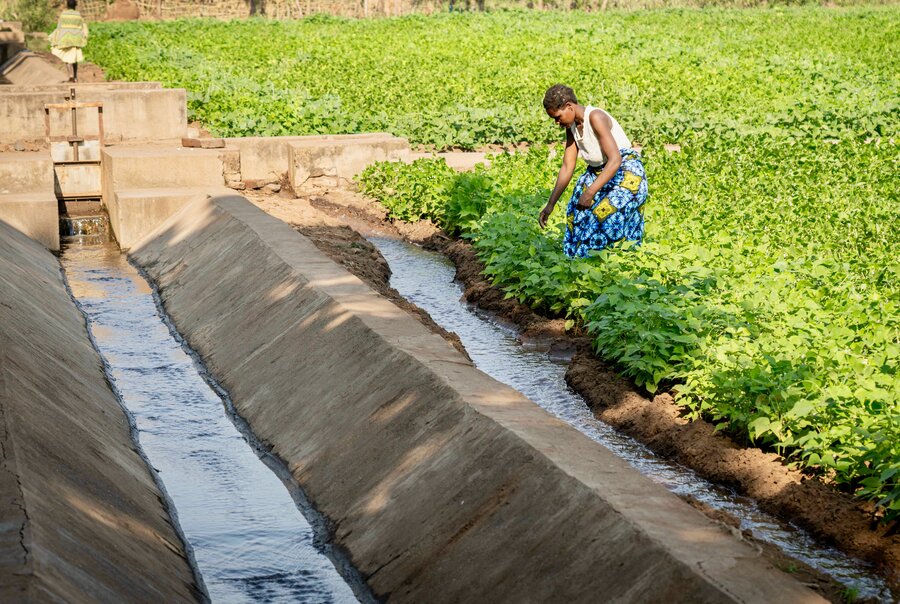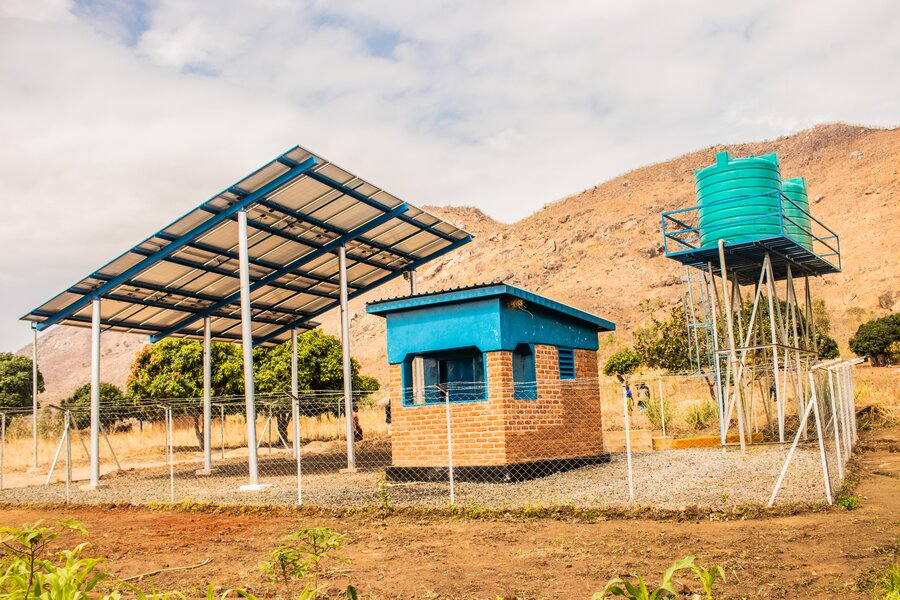For five years straight Rosie Jameson, a mother of two and subsistence farmer in southern Malawi, couldn't grow nearly enough on her one-hectare plot to feed her family.
Persistently severe drought-now a staple in a region where temperatures continue rising at twice the global average-saw to that.
She lives in the village of Joseph in the country's drought-prone south, where most farmers routinely rely on the rain-fed cultivation of plots too small and too parched to feed their families.
"With prolonged dry spells and unreliable rainfall, I simply couldn't grow enough to feed my children six months of the year, let alone support their education," says the 39-year-old, who had to rely on government food support to get by.
No longer.
Last year, Rosie and other village famers harvested a record 15 metric tonnes of food that sold for Malawi Kwacha (MK) 12 million, or roughly US$12,600. This year, they are expecting to triple their harvests-even though Malawi's erratic rainy seasons haven't improved.

Driving their bumper output is a solar-powered irrigation system built next to Rosie's village by the World Food Programme (WFP), in partnership with NGO World Vision and Malawi's government. Constructed in 2019, it offers one way to help improve rural livelihoods in a country where 90 percent of farmers depend on rain-fed agriculture to survive.
The irrigation system counts among a raft of WFP initiatives, including reforestation, community gardens and restoring degraded land, that aim to build local resilience to climate change and break the cycle of hunger.
"WFP efforts to build community resilience and tackle climate extremes in Malawi are now paying dividends, " says Paul Turnbull, WFP Country Director and Representative in Malawi. "We owe this to the communities themselves for owning the interventions, as well as to our donors for the continued support."
Using sun's 'magic'
A WFP study suggests the irrigation scheme and other resilience-building activities are delivering major dividends. Targeting 128,000 families in eight Malawi districts, it found some 95 percent of respondents reported higher crop production. Nine in 10 said they felt better prepared to face natural disasters.

"I don't need to wait for the rains anymore - we are using the magic of the sun," says a smiling Rosie. "This season, I'm growing cash crops like beans, tomatoes, potatoes, eggplant and pumpkins."
The irrigation project involved installing 20 solar panels, drilling two boreholes and erecting four water tanks-each with a capacity of 5,000 litres-as dry season reservoirs. The farmers were shown how to use and maintain the irrigation machinery.
The irrigation system today covers 100 local farmers - double the number reached since it came into service. Growers like Rosie have also diversified their output beyond Malawi's staple corn. Crucially, they no longer have to wait for the year's single, unreliable rainy season to start planting precious crops.
Their harvests now provide some the raw ingredients of WFP's hot school breakfasts, consisting of rice porridge and a mix of vegetables and pulses that reach nearly 600,000 students nationwide. We also link the farmers to supermarkets and other buyers in nearby urban areas to help expand their clientele.
"Last month, I sold MK 90,000 (US$ 88) worth of beans to the school my children attend, for WFP's feeding programme," Rosie says, adding, "we can also afford a wider range of foods at home."
Rosie has also benefitted from an innovative WFP cooling box that increases the shelf-life of farm produce, cutting food waste and increasing her profits as a result.
"Market customers come to me first," she says, "because they know my food is fresh."
WFP has implemented food-for-assets programmes in Malawi since 2015, in coordination with technical departments from the Government of Malawi at central and district level and with the financial support of development partners including the Adaptation Fund, the Flanders Government (Belgium), Germany, Switzerland, United Kingdom and USAID.






